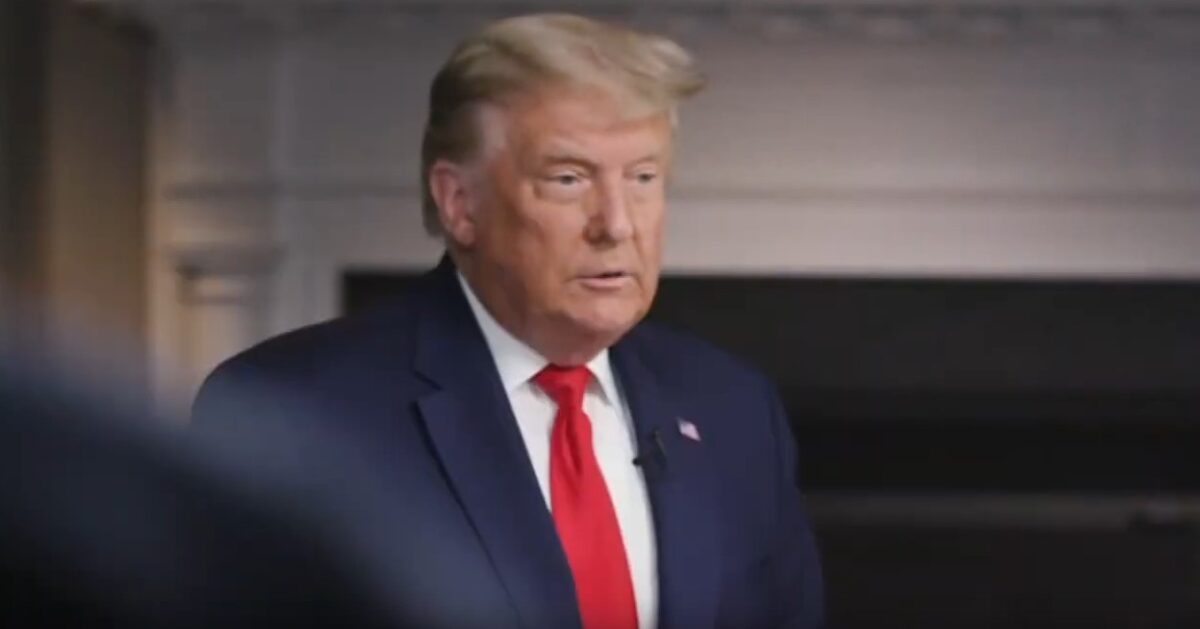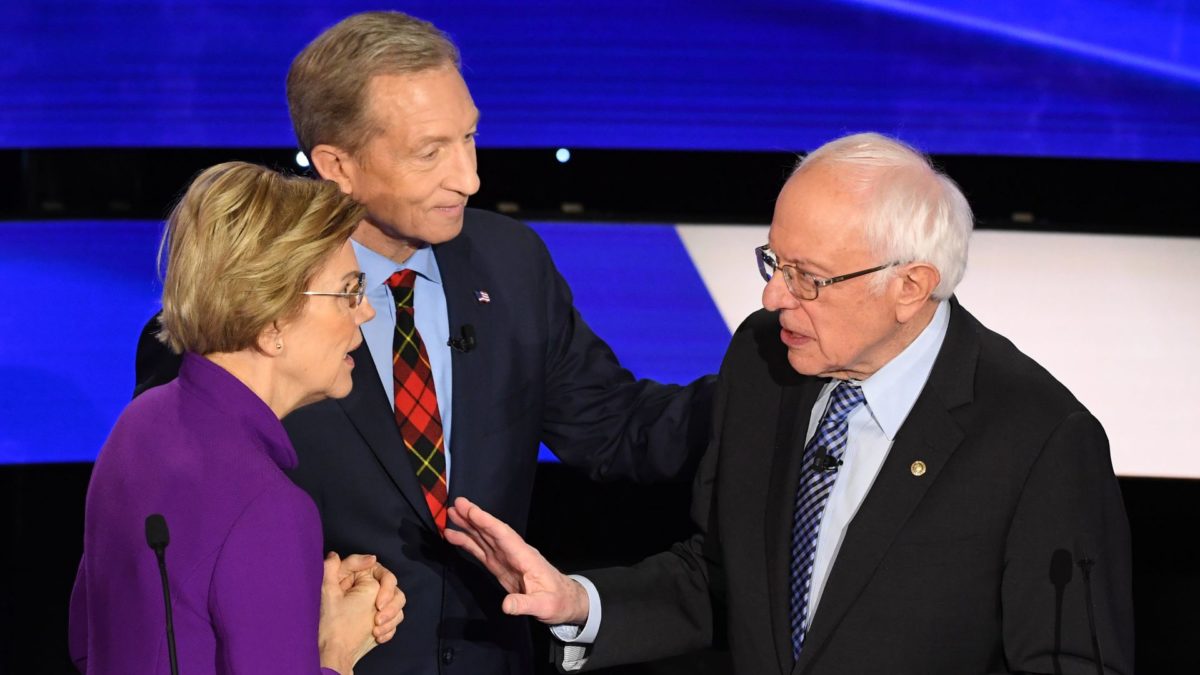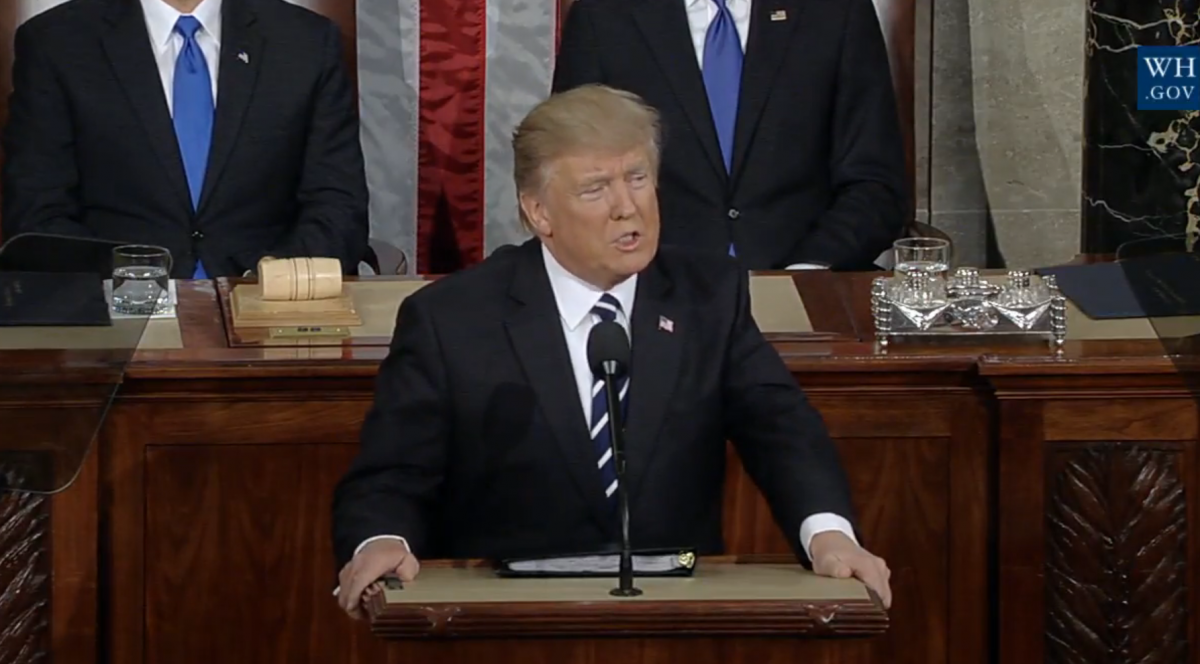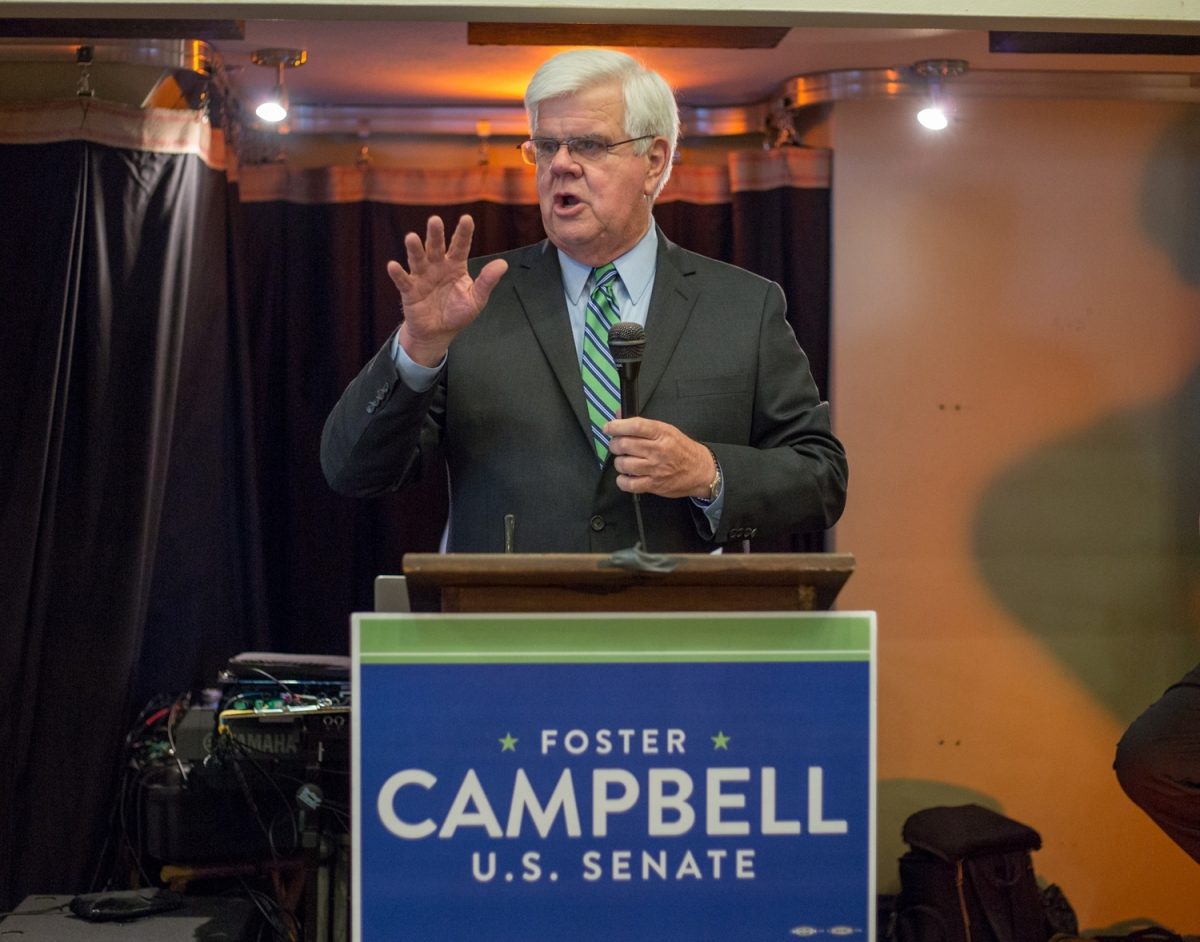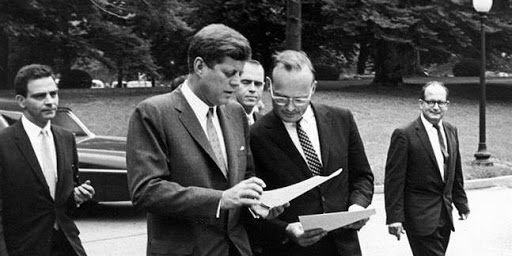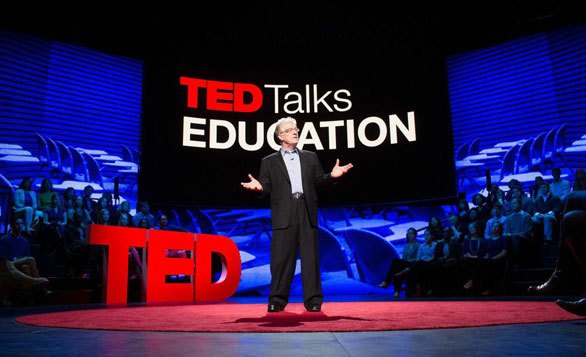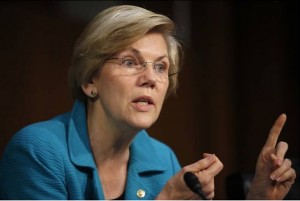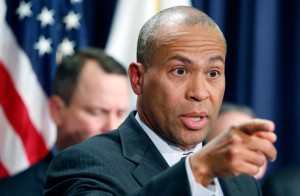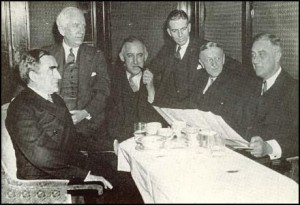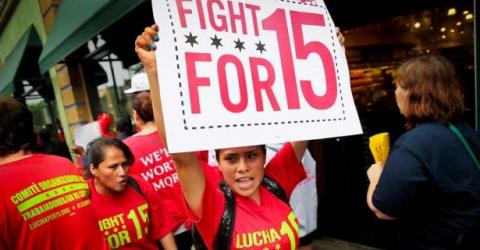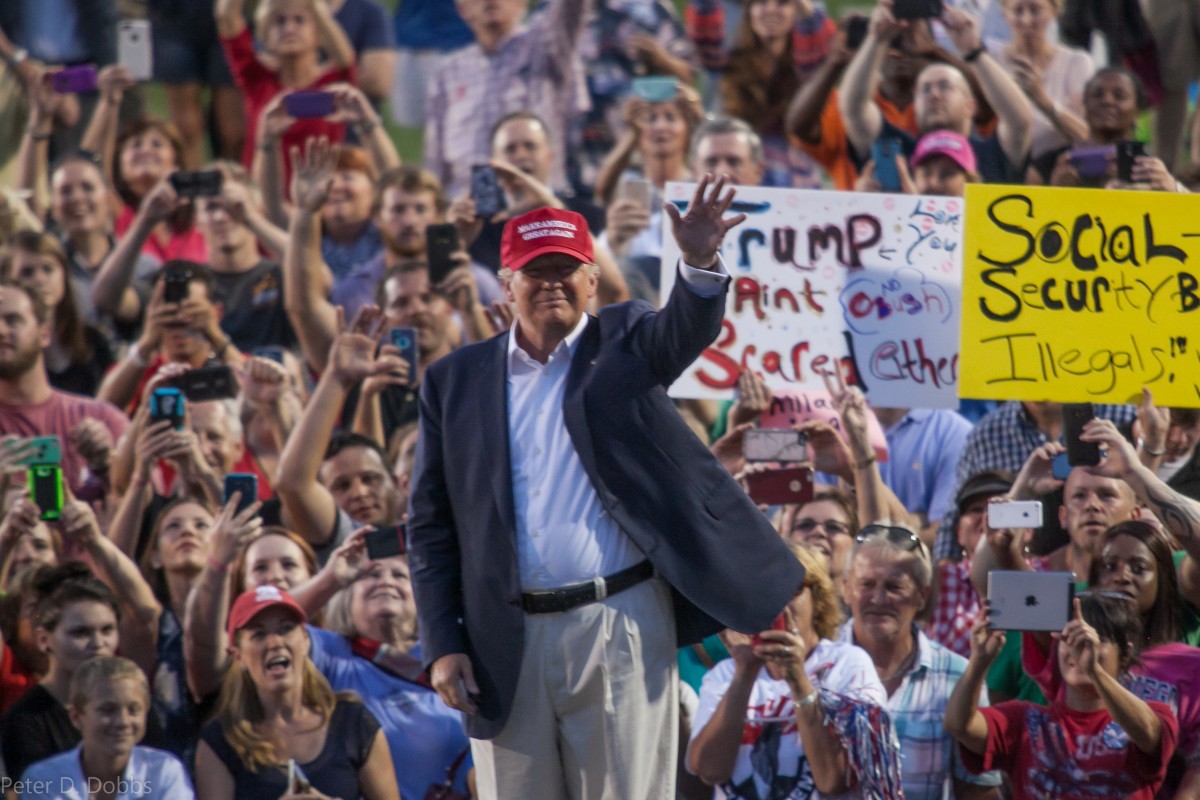On October 22, 2020, Donald Trump leaked his interview with 60 Minutes reporter Lesley Stahl.
I’ve ripped the video from Trump’s Facebook page and put it onto YouTube to prevent Trump from gaining likes and clicks over this.
Here is the video:
Here is the full transcript:
STAHL: Are you ready for some tough questions?
TRUMP: You’re going to be fair.
STAHL: You…I’m going to be fair?
TRUMP: Just be fair.
STAHL: But last time, I remember you saying to me, “Bring it on. Bring iton.”
TRUMP: Yeah. No, I’m not looking for that. I’m looking for fairness. That’s all.
STAHL: You’re going to get fairness. But you’re okay with some tough questions?
TRUMP: No, I’m not.
STAHL: (laughs) You’re not okay with tough questions?
TRUMP: Well, I’m going to be fair. You don’t ask Biden tough questions.
STAHL: Me?
TRUMP: Huh?
STAHL: I don’t…
TRUMP: It’s terrible. It’s terrible. You.
STAHL: (laughs)
TRUMP: You know that. Okay, are you ready?
STAHL: Ready? Everybody ready?
TECH: We’re out.
STAHL: Okay. Can I start?
TECH: Let’s go one second. The door [unintelligible]
STAHL: Mike okay?
TECH: Good.
STAHL: Okay. Ready? So we have the pandemic on your watch. We’ve had racial strife. We’ve had looting. Why do you want this job? Why do you want to be President again?
TRUMP: Because we’ve done a great job and it’s not finished yet and when I finish, this country will be in a position like it hasn’t been maybe ever. The economy is already roaring back. And, uh, other people aren’t going to bring it back. Certainly the person that we’re dealing with is not going to bring it back. They’re going to raise taxes. They’re going to take over your Second Amendment. They’re going to do things that nobody would even believe that’s radical. There’s never been anything like it. You know, there are…
STAHL: Let me ask you…
TRUMP: We are…positioned like never before. We’re going to have a fantastic year next year.
STAHL: Let me ask you what you think your, um, the biggest domestic priority is for you right now?
TRUMP: Uh, well, ultimately, let me — and I’ll tell you. It was happening. We created the greatest economy in the history of our country. And the other side…
STAHL: You know that, you know that’s not true.
TRUMP: It is totally true.
STAHL: No.
TRUMP: Best unemployment numbers. Best em-ployment numbers. 160 million people were working. Highest stock market price. You wouldn’t say that to Biden. What you just said to me. If he had it, you would never say that to Biden. We had the best stock market price ever. That we’re getting close to that price again. We had the best — everything was the best. Our companies were doing better than they’ve ever done before. You could not even think about talking about that.
STAHL: Well, I — I’m not going to fact-check you, you know.
TRUMP: Well, even if you fact-checked me…
STAHL: I’m not going to do that, but…
TRUMP: Excuse me. The stock market was at its highest. The unemployment numbers for African-Americans, for Asian Americans, for Hispanic Americans, for everybody, were the best. Every number. Virtually every number was the best. We had the best economy ever. And what was happening is things we’re coming together.
STAHL: But what I asked you. What your single biggest priority…
TRUMP: Well, no, I’m going to say that. At the other side, we’re starting to call, “Let’s get together.” There was going to be unity. And then we got hit with the plague. And we had to do it again. And we closed it up. And I saved millions of lives. Millions of lives we saved. And now the economy’s growing again. At record numbers. 11.4 million people employed in the last two years.
STAHL: But what is the priority? And also, for all of your things, what….
TRUMP: The priority now is to get back to normal. Get back to where we were. To have the economy rage and be great with jobs and everybody be happy. And that’s where we’re going. That’s where we’re heading.
STAHL: And who is our biggest foreign adversary?
TRUMP: I would say China. They’re an adversary. They’re a competitor. They’re a foe in many ways. But they’re an adversary. Uh, I think what happened is disgraceful. Should never have happened. Should — they should never have allowed this plague to get out of China and go throughout the world. 188 countries. Should never have happened.
STAHL: So they’re…so
TECH: Lesley, one second. Please. (muttering)
TRUMP: What’s wrong?
TECH: The flag is wobbling, and I think because it’s under the other half behind you, Tom.
TECH 2: First one down.
TECH 3: Can you pick up?
TECH: It’s going to be here, right?
TRUMP: It doesn’t look nice blowing in the wind.
STAHL: No. It’s distracting. I can see it.
CUT ON TAPE.
STAHL: I’m going with or without you guys.
TECH: It’s not moving.
TRUMP: Let’s go.
STAHL: Okay. At this stage, four years ago, you were behind in the polls. Where you are now. But you pulled it out. But this time, you have kind of a double migraine. You have unemployment claims going up. You have COVID cases going up. I mean, it’s like the gods have suddenly decided to conspire against you.
TRUMP: I don’t think so at all. No, I think…and we’ve hired.
STAHL: But what about…
TRUMP: We’ve done a great job with COVID.
STAHL: Your unemployment numbers are going up.
TRUMP: Excuse me. 11.4 million people. Why? Because the last poll was just a little bit, a little bit up.
STAHL: No!
TRUMP: And this is for that..
STAHL: Sir, excuse me, cases are up in about forty states.
TRUMP: Okay, you know why cases are up also? Because we do more testing. If we didn’t do more testing, cases would be way down.
STAHL: But why are you saying they’re not up? You know, peop — you’re saying things that people…
TRUMP: No, no, no, what I’m saying to you, Lesley, is the following. We do more testing than any country in the world by far. Second is India. With 1.5 billion people. We do more testing. If we did half the testing, we’d have half the cases. If we did no testing, like many countries, we would have very few cases. Because we do so much testing, the fake news media loves to say cases are up. The fact is we’ve done a very, very good job.
STAHL: Cases are up.
TRUMP: We have done — that’s right. Because we’re doing so much testing.
STAHL: Okay, well, will you at least say cases are up?
TRUMP: Yes, cases are up.
STAHL: Okay.
TRUMP: Because we are doing tremendous testing. And we’re finding that there’s a problem. Testing is a good thing. But it’s also very misleading.
STAHL: When you’re out there, saying we’ve turned a corner, this thing has disappeared.
TRUMP: That’s right.
STAHL: And people can see…
TRUMP: I turned a corner. We turned a corner.
STAHL: People can see cases going up all over. In the Midwest. In the Mountain West. Record numbers of cases.
TRUMP: We have turned a corner.
STAHL: Some say…
TRUMP: We understand the disease. We understand the elderly. And we’re taking care of them at a level like nobody’s ever taken care of the elderly. Especially the elderly with diabetes problems, heart problems. We are taking care of them like nobody’s ever taken care of them. We also understand that youth. 99.9%. As an example, Barron had it. And it was gone in no time. It was just like he had it. It was gone. Hardly knew he even had it. So we are taking care of our people. But, uh, we’ve done a great job with the ventilators, with the equipment, with stocking governors who are not stocked. We’ve made a lot of governors look very good that should have looked good. And that’s okay with me.
STAHL: Okay, let me, let me ask you something about suburban women.
TRUMP: Yeah.
STAHL: You said the other day to suburban women, “Would you please like me please?”
TRUMP: Oh, I didn’t say that. That’s so misleading the way — I say, jokingly, “Suburban women. You should love me.” Because I’m giving you security. And I got rid of the worst regulation. See, the way you said that…
STAHL: Yeah.
TRUMP: Is why people think of you and everyone else as fake news. I say kiddingly, “Suburban women, you should love me.” I got rid of a regulation…
STAHL: You said…
TRUMP: …that would bring low-income housing into suburbia. That is destroying. That will destroy suburbia. And I said that in a joking way. The way you have it, it’s like, “Oh!” Like I’m begging. I, I’m kidding. Play it and I’m kidding. That is such a misleading question, Lesley.
STAHL: But you’re behind the suburban women. In the polls.
TRUMP: I doubt it. I doubt it. I really doubt it.
STAHL: One of the things…
TRUMP: I’m saving suburbia. He’s going to destory suburbia. He’s got a regulation which I terminated that he would put back and even worse — that will destroy, that will bring low-income housing projects into suburbia. And women understand that. And they really learned about it over the last two, three weeks. I terminated the worst regulation you can possibly have. It’s gone. And suburban women appreciate it. They want security. They want safety. Look, I’ve been endorsed by almost every police department, almost every law enforcement group in the country. He’s been endorsed by almost nobody. Suburban women want security.
STAHL: The polls show that you’re behind. And one of the reasons…
TRUMP: You’re not looking at recent polls.
STAHL: One of the reasons is that they don’t feel you’re being up front about the pandemic.
TRUMP: Some…
STAHL: And when you say, you know, there were fewer…we’re rounding the corner. And…
TRUMP: We are rounding the corner.
STAHL: …deliberately like to downplay this.
TRUMP: We are rounding the corner.
STAHL: Are you deliberately…
TRUMP: We are rounding the corner. We’re doing well. We’re doing well. We understand the disease. I saved millions of people. You know, 2.2 million people were supposed to die. If you go back and you look at your models. Models. 2.2 million people. We saved tremendous numbers of people. Plus, I closed it very early from China. Heavily infected. And even from Europe. Heavily infected. We’ve done a good job. We’ve done maybe a great job. What we haven’t done a good job on is convincing people like you. Because you’re really quite impossible to convince. But that’s okay. And the economy now is coming back. And it’s coming back very strongly. And people see that, Lesley.
STAHL: There are more unemployment claims. When the economy has kind of stalled….
TRUMP: Lesley, we just picked up 11.4 million jobs. It’s the largest number in the history of our country in a short period of time.
STAHL: [CROSSTALK] But what about these unemployment claims going on? I mean, how can you ignore that?
TRUMP: Lesley, we just picked up 11.4 million jobs. In a short period of time. It’s the largest number in the history of our country.
STAHL: But what — are you denying that the unemployment numbers have gone up? Is that what…
TRUMP: What I’m saying is…
STAHL: Is that going to happen?
TRUMP: …we got hit by something. Not my fault. Not your fault.
STAHL: Well…
TRUMP: We got hit by something that came out of China. I got stuck with it. And let me tell you. Before it happened, we were doing so good. And now we’re going to be doing and we are. We are doing good. But…
STAHL: Well…
TRUMP: Look at, look at as an example last week. A few days ago. Gallup did a poll. 56% of the people said that they were better off now during a pandemic. Than they were during Obama and Biden. 56%. It was a record number. Right?
STAHL: Yeah. But I want to know if you, if you’re…what? Ignoring the fact that there are unemployment claims?
TRUMP: No, I’m not ignoring it.
STAHL: Okay, well, what, what are you saying?
TRUMP: What I’m saying is that we got hit with somebody. It’s not our fault. We got hit.
STAHL: I know, but what…
TRUMP: And we’ve a good job. Not a good job. We’ve done a great job. Remember that number. A very important number. 56% say they’re happier now than they were four years ago under Biden and Obama. Right? I’ll put his name first. Biden and Obama. And they didn’t have the pandemic. Although Biden did have a big problem with H1N1, which he says in reverse. With the H1N1 swine flu. And it was a disaster. And his own Chief of Staff said it was a total disaster. They didn’t know what they were doing.
STAHL: But can we go back for one second to the pandemic? Because, um, you called Dr. Fauci and other health officials “idiots.”
TRUMP: Dr. Fauci…
STAHL: I’m wondering if…
TRUMP: Wait a call. Wait a call me? [gibberish]
STAHL: I’m wondering if you.
TRUMP: When did I call them an idiot?
STAHL: You called them idiots. I wonder if you…
TRUMP: Well, he’s been wrong a lot. I like him, but he’s been wrong.
STAHL: I wonder if you think that masks don’t work.
TRUMP: Well, Dr. Fauci originally said…
STAHL: Well, what do you say? Do you say…
TRUMP: Well, let me just tell you. You mentioned. Dr. Fauci said, “Don’t wear maaks.” He said he said, “Wear them.”
STAHL: But what do you say?
TRUMP: I say that — I, I feel masks possibly work. But certainly you want to stay away a certain distance. Socially distanced. Etcetera etcetera. But I would say a mask works. And I have nothing against masks. And I tell people to wear masks. I have no problem.
STAHL: Well, tell me then about these rallies you’ve been having.
TRUMP: A lot of people are wearing masks. And they’re outside.
STAHL: People. A lot of people aren’t. I’m, I’m watching all these people jammed in together. And I’m seeing most of them without masks.
TRUMP: Yeah.
STAHL: And I’m wondering the message that you’re sending with these pictures coming out.
TRUMP: Take a look. Yesterday, we were in Arizona. Record setting rallies. Numbers of people like nobody’s seen before.
STAHL: Well, you used to have big rallies.
TRUMP: [CROSSTALK] Many, many. I watched it. What?
STAHL: You used to have bigger rallies.
TRUMP: No, these are much bigger than I’ve ever had.
STAHL: I don’t want to bicker over that.
TRUMP: You know, you’re so negative.
STAHL: Tell me about the masks here.
TRUMP: You’re so negative. These are the biggest rallies we’ve ever had. You just come in here with that negative attitude. These are the biggest rallies we’ve ever had. And we are having numbers like we’ve never had.
STAHL: Well, tell me about the masks.
TRUMP: There is one — excuse me. You made a statement. There is more enthusiasm right now for us than we ever had before. Ever. And you will see that in a short period of tiem.
STAHL: Well, what about the masks?
TRUMP: A lot of people are wearing masks. I mean, I looked yesterday. A lot of people were — and it’s outdoor. They want it outdoor. And we’re doing it outdoor.
STAHL: But I can’t believe that after what happened in the Rose Garden here, after the announcement, with all the people getting sick…
TRUMP: Yeah.
STAHL: That you are not being more strongly encouraging about wearing masks in the Oval Office.
TRUMP: I told people that…
STAHL: Well, you don’t.
TRUMP: Lesley, we hand out thousands of masks.
STAHL: But you look out and you’re not wearing them. And you don’t say, “Please wear a mask.”
TRUMP: Well, you’ve been looking yesterday. Take a look at — take a look yesterday in Arizona. Everybody behind me has masks on.
STAHL: But I’m looking at other places. Um, I’m looking at Wisconsin. Which is a hot spot right now.
TRUMP: Right. Right. A lot of people had masks on.
STAHL: A lot of people without masks.
TRUMP: That was outside.
STAHL: And you don’t get up there and say, “Look…” Come on.
TRUMP: Okay. Go ahead.
STAHL: “I don’t want you to get sick.”
TRUMP: What’s your next question, Lesley? We’re outside. The rallies are bigger than they’ve ever been. There’s more enthusiasm than we’ve ever had. There has never been anything like what you’re witnessing now. And you’ll see that soon.
STAHL: Okay, but I’m asking about masks. Not about the size of your rallies. I’m asking where you…
TRUMP: You commented on the size of the rallies.
STAHL: I know.
TRUMP: You said they’re not as big as they used to be. And I’m telling you they’re much bigger.
STAHL: Okay, but I’m asking you now about the masks. Why aren’t you getting up there and saying, “I have it. I don’t want you to get it. So please put your mask on.”
TRUMP: Lesley, we hand out masks to everybody who comes to the rallies. We tell them to wear their masks.
STAHL: But you don’t. And they love you.
TRUMP: Oh, I don’t know, Lesley.
STAHL: If they heard you say it…
TRUMP: I have no problem. No problem.
STAHL: They love you. They would pay attention.
TRUMP: Next question. Go ahead.
STAHL: To anything you said.
TRUMP: I don’t know about that. I hope you’re right. Go ahead.
STAHL: Okay, um. This is important. Um, okay, I’ll ask you another health question. Okay?
TRUMP: Go ahead.
STAHL: Um, you promised that there was going to be a new health package. Healthcare plan.
TRUMP: Yeah.
STAHL: Um. You said that it was going to be great. You said that it was ready. It’s going to be ready.
TRUMP: It will be.
STAHL: It’s all ready. It will be here in two weeks. It’s going to be like nothing you’ve ever seen before. And, of course, we haven’t seen it. So why didn’t you develop the health plan?
TRUMP: It is developed. It is fully developed. It’s going to be announced. Very soon.
STAHL: When?
TRUMP: When we see what happens…
STAHL: [CROSSTALK] You’re saying that over and over.
TRUMP: …with Obamacare, which is not good. And when we see what happens with Obamacare.
STAHL: But if the Supreme Court…
TRUMP: And it will be much less expensive than Obamacare. Which is a disaster. And it will take care of people with pre-existing conditions.
STAHL: But your plan was to reel into place and, if the Supreme Court finishes Obamacare, there will be all these people stranded.
TRUMP: No, they won’t.
STAHL: There’s no replacement.
TRUMP: We will make a deal and we will have a great healthcare plan.
STAHL: But you keep saying that.
TRUMP: With less expensive. Less expensive and a much better plan.
STAHL: Why haven’t we seen it?
TRUMP: You have seen it. I’ve been putting out pieces all over the place. And we actually have plans. And we have 180 million people right now, have a plan. And you haven’t been watching. You haven’t been watching.
STAHL: But what about the pre-existing? People with pre-existing conditions. If the Supreme Court…
TRUMP: Are protected. Will be totally protected.
STAHL: How?
TRUMP: They’ll be protected, Lesley.
STAHL: How? How?
TRUMP: People with pre-existing conditions are going to be protected.
STAHL: How?
TRUMP: As they are now.
STAHL: How?
TRUMP: In any plan we do.
STAHL: But there isn’t…
TRUMP: They will be protected. Lesley, people with pre-existing conditions would be always protected. Always.
STAHL: But if, if the Supreme Court ends this, with Obamacare, um…
TRUMP: Well, we’ll have to see what happens. It’s got a way’s to go. We’ll see what happens. I think, I think it will end, uh — I think, I hope that they end it. It will be so good if they end it.
STAHL: But if they end it…
TRUMP: We will come up with a plan, which will be a…
STAHL: Will.
TRUMP: Yeah, we will.
STAHL: But you said it would already.
TRUMP: We have large sections of it already done. And we’ve already come up with plans. Take a look at your various secretaries. Various plans that we’ve already come up with. And also, you know, a large part of this country has private health insurance.
STAHL: Yes.
TRUMP: 180 million people. And under that, Biden, he doesn’t have any clue. But under that, 180 million people will lose their healthcare. And they’ll go to socialized medicine. And that’s not going to be acceptable.
STAHL: Okay.
TRUMP: 180 million people, Lesley, will go to socialized medicine.
STAHL: And then…
TRUMP: It will not be accepted.
STAHL: And if the Affordable Care Act is determined to be unconstitutional…
TRUMP: Then we’re going to have a new, we’re going to have new and it’s going to be very different.
STAHL: You keep saying that and don’t show it to us. And so people with pre-existing conditions…
TRUMP: We’ve come up with many plans, Lesley, and we have — they’re already in existence. If, I’ll tell you what, after this interview, I will show you short-term, longer-term. I’ll show you different plans. We’ve come up with many plans. And we’ve cut the individual mandate out. You know, the individual mandate has died. That was the worst part of Obamacare. That’s gone.
STAHL: Okay. All of that, I grant you. All of that. But if, if there’s no plan, and, uh, a replacement plan.
TRUMP: Right.
STAHL: And the Supreme Court says that Obamacare goes away, people with pre-existing conditions will be stranded.
TRUMP: No, no.
STAHL: And that’s just a fact.
TRUMP: It’s wrong.
STAHL: No!
TRUMP: It’s wrong. A new plan.
STAHL: But will.
TRUMP: We won’t do anything. Will and is. We won’t do anything. And no plan unless we have pre-existing conditions covered. And the individual mandate, which you don’t want to mention, was terminated. It was terminated. Individual mandate was terminated. That is the biggest thing that’s happened. And that actually makes Obamacare not Obamacare. Because under that, you would pay a fortune for the privilege of not having to pay for bad health insurance. We got it terminated. Terminated. Through the legislature. Signed, done. That means Obamacare is no longer Obamacare. We got rid of the most important element of Obamacare. And was the worst element of Obamacare that nobody wanted. Nobody liked. So Obamacare essentially was terminated as we know it. Now we have the carcass of Obamacare.
STAHL: Well, part of the carcass is pre-existing.
TRUMP: Lesley, we’ve managed it well. You know, I had a choice to make. When we get rid of these individual mandate, nobody believed we could do that and I did it. I had a choice to make. Do I manage the remainder of whatever’s left of this whole thing called Obamacare, which is no good? Do I manage it well or do I manage it badly? If I manage it well, mmmrrr, politically that’s not good.
STAHL: What would you want to leave it?
TRUMP: I decided to manage it well.
STAHL: Do you want to leave it? I mean, pre-existing’s the problem with it.
TRUMP: [CROSSTALK] No, I don’t want to leave it. I want to see what happens. Here’s what happens.
STAHL: No, but Obama…
TRUMP: We may be stuck with it if we lose in the Supreme Court. In which case, we’re wasting a lot of words. If we win, we will come up with a much — and we will do that — come up with a much better healthcare for much less money always protecting people with pre-existing conditions.
STAHL: Um, are you going to say — you didn’t say this. Because I saw you say this.
TRUMP: Go ahead. You’re, you’re only trying to — I wish you would, I wish you would interview Joe Biden like you interview me. It would be so good. You know what?
STAHL: You like this, I thought. I thought you liked sparring.
TRUMP: I don’t mind. I don’t mind. But when I watch him walk out of a store, he’s in the midst of a scandal. His family is corrupt. Okay. He’s corrupt. He’s a corrupt politician. And he’s walking with an ice cream. And the question the media asks him is “What kind of ice cream? What flavor ice cream do you have?” And he’s in the midst of a scandal.
STAHL: He’s not.
TRUMP: And he’s taking — of course he is.
STAHL: He’s not. No. Come on.
TRUMP: Of course he is. See that? So you’re like, like…
STAHL: You have the Seante Committee Republicans.
TRUMP: You’re like Big Tech. You’re protecting him. And everyone is. Except for…a few people.
STAHL: Yeah but you’re exag — you’re taking something that was investigated.
TRUMP: Lesley!
STAHL: By a Republican Committe
TRUMP: You think it’s okay for the Mayor of Moscow’s wife to give him millions and millions of dollars — three and a half million dollars — to give his family [mumbling]. Do you think it’s okay for Hunter Biden to say, to say that we’re giving, we’re giving the Big Guy 10% of this massive amount of money that we’re taking in. Do you think it’s okay for all of these horrible things that you’ve seen? Where they getting [sic] hundreds of thousnads and millions of dollars, when China gives them a billion and a half dollars to manage, the family, a billion and a half dollars and he’s supposed to negotiate? Let me tell you. It’s the biggest — second biggest scandal.
STAHL: So…
TRUMP: The biggest scandal was when they spied on my campaign. They spied on my campaign.
STAHL: There is no real evidence of that.
TRUMP: Of course there is.
STAHL: No.
TRUMP: It’s all over the place. Lesley…
STAHL: Sir.
TRUMP: They spied on my campaign and they got caught.
STAHL: Can I just say something? You know, this is 60 Minutes and we can’t put on things we can’t verify.
TRUMP: But you won’t put it on because it’s bad for Biden. Look, let me tell you.
STAHL: We can’t put it on things we can’t verify…
TRUMP: Lesley, they spied on my campaign.
STAHL: We can’t verify that.
TRUMP: It’s been totally verified.
STAHL: No.
TRUMP: It’s been. Just go down and get the papers. They spied on my campaign. They got caught.
STAHL: No.
TRUMP: And then they went much further than that. Then they got caught. And you will see that, Lesley. And you know that. But you just don’t want to put it on the air.
STAHL: No. As a matter of fact, I don’t know that.
TRUMP: Okay.
STAHL: And you’re out there…
TRUMP: So why don’t you get back to your interview and let’s go?
STAHL: I’m going to look. Alright. So you said in the Briefing Room, “Nobody likes me. I…it can only be my personality.”
TRUMP: I said that jokingly. That is sarcastic. Nobody likes me. It must be my personality. I say it all the time. Nobody likes me. It must be my personality. I say it all the time, Lesley.
STAHL: Do you think that your tweets and your name calling are turning people off?
TRUMP: No, I think I wouldn’t be here if I didn’t have social media because the media is, uh…
STAHL: The name calling, the…
TRUMP: In my opinion, the media is corrupt. But the media…
STAHL: You know, you’ve told…
TRUMP: …is fake and frankly if I didn’t have social media, I’d have no way of getting out my voice.
STAHL: You know what you told me a long time ago? When I asked why you keep saying “fake” in the media.
TRUMP: Yeah. Yeah.
STAHL: You said to me, “I say that because I need to discredit you. So that when you say negative things about me, no one will believe you.”
TRUMP: I don’t know if they discredit you.
STAHL: But that’s what you told me.
TRUMP: You discredited yourself.
STAHL: You told me.
TRUMP: Lesley, you’ve discredited yourself. When you say that you’re not going to cover Biden. You’re going to ask him what flavor ice cream he has. Okay?
STAHL: That’s not what I mean.
TRUMP: Instead of “Why did Hunter get three and a half million dollars from Moscow?” Instead of “Why is an energy company paying your son $183,000 a month?” Or whatever they’re paying him. And he has no experience in energy. You know, you discredit yourself. I don’t have to discredit you.
STAHL: So, so this story about Hunter and his laptop. Some repair shop found it. The source is, uh, Steve Bannon and Rudy Giuliani.
TRUMP: I don’t know anything about that. I just know it’s a laptop. And they happened….
STAHL: And you’re, and you’re making this one of the hottest and most important issuess in the rows.
TRUMP: I don’t know about the two gentlemen you mentioned.
STAHL: I mean, this is the most important issue in the country right now.
TRUMP: It’s a very important issue. To find out whether a man’s corrupt who’s running for President. Who’s accepted money from China? And from Ukraine? And from Russia? Yeah, I think it’s an important issue.
STAHL: All these things have been investigated and discredited.
TRUMP: It’s incredible the way you can try and say this and sit there and look me in the eye and say…
STAHL: A Republican Committee.
TRUMP: He accepted money. His family. From Russia, from Ukraine, from China, and from other places.
STAHL: And a Republican…
TRUMP: His brother, who didn’t have experience, became a big builder in Iraq without experience. Take a look at what’s going on, Lesley. And then you say how that shouldn’t be discussed?
STAHL: I’m saying…
TRUMP: It’s the biggest scandal out there, Lesley.
STAHL: And you think it’s the biggest issue to campaign on.
TRUMP: I think it’s, I think it’s one of the biggest scandals I’ve ever seen. And you don’t cover it.
STAHL: Because…
TRUMP: You want to talk about…
STAHL: Well, because it can’t be verified. I’m telling you.
TRUMP: You want to talk about insignficant things?
STAHL: I’m telling you.
TRUMP: Of course it can be verified. Excuse me.
STAHL: We can’t. We can’t…
TRUMP: They found the laptop. Lesley, Lesley!
STAHL: It can’t be verified.
TRUMP: What can’t be verified?
STAHL: The laptop!
TRUMP: Why do you say that?
STAHL: Because…
TRUMP: Even the family doesn’t…
STAHL: It’s unverified.
TRUMP: The fmaily on the laptop. He’s gone into hiding. For five days, he’s gone into hiding.
STAHL: He’s preparing for your [delinquent?]
TRUMP: Oh, it’s taken him five days to prepare? I doubt it. I doubt it. Okay, go ahead.
STAHL: So let’s get back to the name calling. Okay? I, and whether you think it’s turning people off.
TRUMP: No, I think — it is what it is.
STAHL: You called Biden stupid.
TRUMP: Where are we sitting here? Where are we sitting?
STAHL: In the Rose Room.
TRUMP: Of what?
STAHL: Of the White House.
TRUMP: That’s right. How did I get here? How did I get here? We’re in the White House.
STAHL: And what are you saying? Oh, look, by name calling, you think that’s…
TRUMP: No, not the name calling, but, you know, doing the right thing. And we…we have a great record. I mean, we got hit by a pandemic. It wasn’t my fault. But it wasn’t. It was China’s fault. But, but Lesley…
STAHL: The reason…
TRUMP: We’re in the White House. The press is very biased. Very, very biased. And, and I’m not talking about anyone…
STAHL: You’re trying to discredit us.
TRUMP: No, no.
STAHL: Yes.
TRUMP: I’m not. You’re discrediting yourself.
STAHL: No. You are.
TRUMP: [CROSSTALK] Lesley, you’re discrediting yourself. When you don’t go after Biden. With the corruption in the Biden family.
STAHL: Why are you asking me about going after Biden? You’ve asked me five times.
TRUMP: When you don’t go after, uh, what happened in the Russia witch hunt, which turned out to be a total phony with no collusion. No collusion whatsoever. When you don’t do that, you discredit yourself. The press, you know, is highly discredited right now. You do know that. So you discredit yourself.
STAHL: Half — I don’t even know where to go here — half the country loves you. But the other half doesn’t. And I’m wondering why you don’t —
TRUMP: They were starting to, Lesley. When the economy was prior, just prior to the, you know, to the plague, they were starting to really like — we were all starting to like each other. It was coming together. There was going to be a lot of unificatoin.
STAHL: I’ve heard you say that before and I don’t think we were coming together.
TRUMP: Okay. And I’m just telling you…
STAHL: I think we’ve had disunity on some unfortunate….
TRUMP: [CROSSTALK] People were calling me…people were calling me about coming together. And then we got hit by the plague. And now we’re rebuilding it again. And it’s going well.
STAHL: Well, do you think that you do anything to unify the country?
TRUMP: I do. I think I do unify the country. I think I will unify the country. It’s called success. When our country becomes again…
STAHL: What about the rabid partisanship in the country? Do you take any responsibility with the country being divided against itself? Do you feel that?
TRUMP: I’d like not to. But, you know, perhaps everybody has to take a little responsibility for it. But when people put out phony witch hunts, you know. When they spy on your campaign. You have to fight back. And if you don’t fight back, you’re not sitting here very long and you go back home. You go back home to mommy.
STAHL: I’m, I’m, I’ve been listening to you — I don’t know how long we’ve been here — and it’s just attack, attack, attack, attack, attack.
TRUMP: I don’t think so. I mean, look, it’s not attack.
STAHL: It is.
TRUMP: It’s defense. It’s defense.
STAHL: No.
TRUMP: It’s against attacks.
STAHL: No. You’ve been attacking.
TRUMP: It’s defense against attacks.
STAHL: (nearly laughing) You’re very impressive.
TRUMP: I don’t think so. I mean, I don’t view it that way. I’m defending myself. And I’m defending the institution of the press and it’s very important.
STAHL: Can, can you?
TRUMP: [to Pence off camera] Hi, Mike, are you having a good time, Mike, watching?
PENCE: (laughs) Yeah, I am.
TRUMP: You know Mike, right? Our great Vice President?
STAHL: I do.
TRUMP: You think she should ask questions like this of, uh…
PENCE: (laughs)
STAHL: Wow. You want to put that on there.
TRUMP: You think she’ll ask questions like this of Joe.
PENCE: I don’t think so.
STAHL: Can you, can you, um, can you characterize, uh, your supporters? Can you?
TRUMP: Yeah. I think I can. People that love our country. And people that don’t want to see the, uh, stores get looted and burned down and people that don’t want to see riots and they don’t want to see anarchists. Yeah. I think I can.
STAHL: And…
TRUMP: These people that love our country.
STAHL: You may…
TRUMP: And they don’t like to see…
STAHL: But you don’t seem…
TRUMP: They don’t like to see policemen get shot and not be able to defend themselves. They don’t like to see rioting in the middle of Fifth Avenue or the middle of other streets. In Portland or other places. And they like it when their President gets the endorsement of virtually every police group and frnakly almost everybody having to do with law and order. Positive law and order. But you know what. They’re people who love our country more than anything else. And they like to see our country thrive.
STAHL: But do you think that when you hold rallies and encourage people to say “Lock her up” and…
TRUMP: I don’t encourage them. They say it.
STAHL: And you admit it.
TRUMP: Hillary Clinton.
STAHL: No, listen. They don’t do that.
TRUMP: Hillary Clinton deleted. She deleted 33,000 emails. After she got a subpoena from the United State Congress.
STAHL: Why does, why does that…
TRUMP: No, not, that’s illegal. Now why somebody doesn’t do something about it?
STAHL: [CROSSTALK] I know, but [unintelligible] why is this still an issue? Why do people…
TRUMP: I think it’s an issue.
STAHL: They’re not going to vote on that.
TRUMP: To me, it’s an issue.
STAHL: She ran last time.
TRUMP: Excuse me. When they say “Lock her up,” it’s not me. They say it. It starts..
STAHL: You encourage it.
TRUMP: I don’t encourage it.
STAHL: Yes.
TRUMP: No. If I mention her name about something, they go crazy.
STAHL: Well, what about the Governor of Michigan who had had this plot that people were going to, people, I think…
TRUMP: I don’t know anything about the plot, but I can tell you this.
STAHL: I’m telling you about the plot.
TRUMP: It was our Justice Department that is the one that’s helping her.
STAHL: Yeah.
TRUMP: My Justice Department, before all of that.
STAHL: Yes, I…
TRUMP: It was our Justice Department that’s helping her. And, you know, people aren’t so, they’re not liking her so much. Cause she’s got everybody locked down. And we just won a Supreme Court where it’s unconstitutional. The only one she doesn’t have locked down is her husband, who went sailing and did things that he wasn’t supposed to be doing.
STAHL: You are, uh, very powerful. And the people who love you love you with passion. And if you go after somebody in the way you’ve been going after her.
TRUMP: I haven’t gone after her.
STAHL: You take it to heart and then there are plots and threats.
TRUMP: I haven’t gone after her.
STAHL: And the same with Dr….yeah, you did.
TRUMP: [CROSSTALK] I’ve helped her. It was our Justice Department that’s helping her.
STAHL: And when you criticized her.
TRUMP: Oh, I do criticize her. Yeah.
STAHL: Well, that’s the…
TRUMP: I think the way she locked down Michigan is a disgrace.
STAHL: But when…
TRUMP: The way she closed those churches in Michigan is a disgrace. I…yeah, I think it’s disgraceful what she’s done. I do.
STAHL: You went a lot of…
TRUMP: And, by the way, that’s unclear. That’s other…that’s other governors also. They happened to be Democrats. And they’ve closed up their states. And they’re causing a lot of problems with these lockdowns. Suicide, drugs, alcohol. A lot of bad things are happening. And they should open up their states. Carefully. But they should open up their states.
STAHL: Well, when you say “Open up,” you don’t say “carefully.” You say, “Open up.” You’re not — You don’t have, you don’t have…
TRUMP: Oh, I say “carefully.”
STAHL: A progressive program to say “Open up with masks.” Open up with social distancing. You say…
TRUMP: The governors run their states.
STAHL: No, but the message comes from you.
TRUMP: When the governors run their states…
STAHL: You are…
TRUMP: And the governors have to do what they have to do.
STAHL: But you…
TRUMP: But when they lock down Michigan, she’s doing a tremendous disservice.
STAHL: Well, what about you…
TRUMP: Same thing with Pennsylvania. Same thing with North Carolina.
STAHL: What about these…
TRUMP: These are Democrat governors and they’re doing a great disservice.
STAHL: What about you saying “Let’s open up, but let’s wear masks?” Let’s open up.
TRUMP: Well, let me say.
STAHL: You don’t. You don’t.
TRUMP: I say. I’m not against masks at all.
STAHL: But you’re not for them.
TRUMP: Sure, I am. I wear ’em. Wear ’em. But I also say socially distance. I say all the things. But you know what? Well, look, with you, nothing I said would be any good, Lesley.
STAHL: That’s not true, Mr. President.
TRUMP: That’s okay.
STAHL: That’s not true.
TRUMP: But in the meantime, having a record comeback. Because if you look, we’re the fastest growing nation in the world after this pandemic. By far. And we sunk less than any other nation. Relatively speaking. And we’re coming back very strong. Very, very strong.
STAHL: So you — you don’t want to lock up Governor Whitmore, but you want to lock up…
TRUMP: When did I say “Lock her up?”
STAHL: The Bidens.
TRUMP: I never said “Lock her up.”
STAHL: Obama.
TRUMP: When did I say “Lock her up”? When did I say “Lock up the governor”? I didn’t say “Lock up the governor.”
STAHL: Alright, but you want to…
TRUMP: Why would I lock her up?
STAHL: You…
TRUMP: No, but why did you say “You don’t want to lock up the goveror?” Of course I don’t want to lock her up. Why would I lock her up?
STAHL: Because you were in front of a rally and people saying it and encouraging it.
TRUMP: I never said it, Lesley. I never said to lock her up.
STAHL: So you don’t want to lock up the governor.
TRUMP: Lesley, it’s a vicious thing you just said. I never said, “Lock up the Governor of Michigan.” I would never say that.
STAHL: Well, did you…
TRUMP: Why would I say that? Because…
STAHL: Well, what about the Bidens?
TRUMP: She’s doing lockdowns.
STAHL: You want to lock up the Bidens?
TRUMP: No, I don’t want to lock them up.
STAHL: What about Obama?
TRUMP: But they certainly should be looked at.
STAHL: Obama? Do you want to lock up Obama?
TRUMP: No, I don’t want to lock him up. But he spied on my campaign.
STAHL: Do you want to lock up…
TRUMP: Obama and Biden spied on my campaign. Do you know what that is? Do you know what they did? Do you know how horrible it is what they did?
STAHL: That’s never been verified.
TRUMP: You weren’t there. It’s been totally verified, Lesley.
STAHL: No.
TRUMP: You’ll find out. But it’s been totally verified.
STAHL: Um, you’ve all but said that Attorney General Barr should go after President Obama. I would think you would humor me here. Okay. You muse. How would you feel if then President Biden had gone after you?
TRUMP: Oh, he probably will. Because I think he’s a very dishonest guy. And he will probably look for something. He probably will. We’ll see. But you know what? Attorney General Barr has been very nice. That’s all I can tell you. He’s been very nice.
STAHL: And you…
TRUMP: He’s been very respectful.
STAHL: You have critcized him.
TRUMP: No, I didn’t criticize him. It’s just a different personality. They’re very lucky. They’re very lucky. Cause the evidence is overwhelming. And Attorney General Barr is a great gentleman. He’s a great gentleman. They are very lucky.
STAHL: I…
TRUMP: I can’t tell you what’s going to happen. I don’t know.
STAHL: I know…
TRUMP: Because I purposely like to stay out of it. You know what? I don’t like to get involved. I can if I want, but I don’t like to get involved. But I think they’ve been very, very lucky. Attorney General Barr is a gentleman.
STAHL: You know, I, I didn’t want to have to this kind of…
TRUMP: Of course you did.
STAHL: No, I didn’t. No, I didn’t.
TRUMP: Of course you did. Well, you brought up a lot of subjects…
STAHL: Well, I said..
TRUMP: …that were inappropriately brought up.
STAHL: ..that I would ask you tough questions.
TRUMP: They were inappropriately brought up.
STAHL: But…
TRUMP: Right from the beginning. No, your first question was “These are going to be tough questions.” No.
STAHL: It is.
TRUMP: You set up the interview. Your first statement was…
STAHL: You’re President. Don’t you think you should be…
TRUMP: Excuse me. No, no, no.
STAHL: …accountable to the American people?
TRUMP: Listen. Your first statment to me, “This is going to be tough questions.” Well, I don’t mind that. But when you set up the interview, you didn’t say that. You said, “Oh, let’s have a lovely interview.” And, and here’s what I do say.
STAHL: So why?
TRUMP: You want to ask Joe Biden. I saw your interview with Joe — the interview with Joe.
STAHL: I never did a Joe Biden interview.
TRUMP: It was a joke. The interview. 60 Minutes. I see Joe Biden given softball after softball. I’ve seen all of his interviews. He’s never been asked a question that’s hard.
STAHL: Okay. But forget him for a minute.
TRUMP: No, you start with me.
STAHL: You’re Presidnet. You’re…
TRUMP: Excuse me, Lesley, you started with me. Your first statment was, “Are you ready for tough questions?” That’s no way to talk. No way to talk.
AIDE: Lesley, one, one second, we’re, we’re, uh, this is the first warning. I think we have five minutes until we have the Vice President step in. Is that about right?
TRUMP: Well, I think we have enough. It really — we have enough.
AIDE 2: I think we’re ready for the Vice President now.
TRUMP: I think we have enough of an interview here. Okay? That’s enough. Let’s go. Let’s go. In fact, uh, let’s go meet for two seconds, okay? Thanks. I’ll see you later. Thanks.
